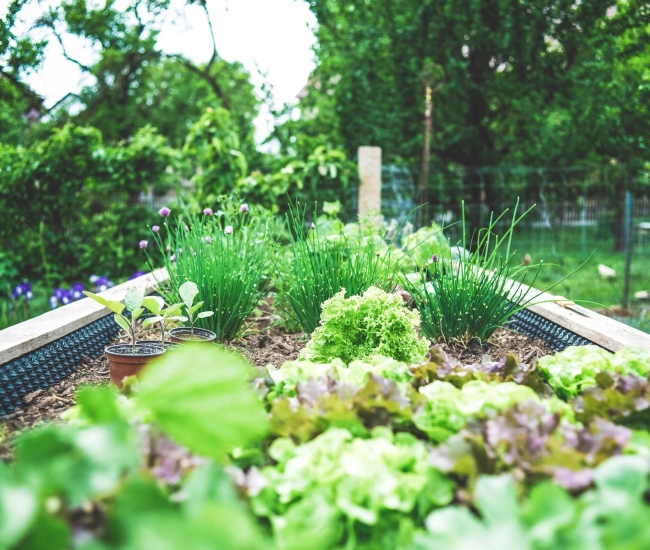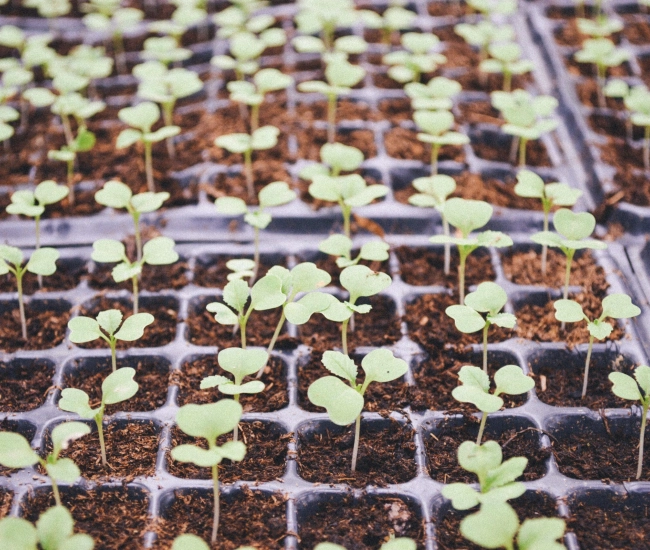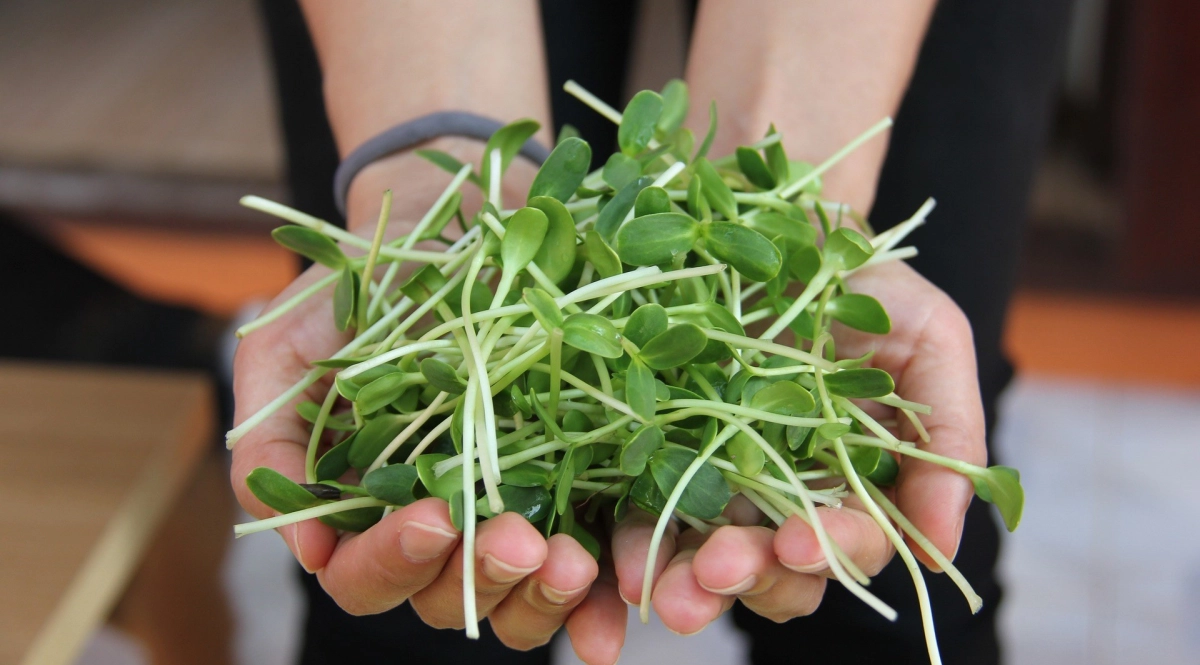
We all want to eat fresh, healthy, and local as much as possible. But sometimes, especially in winter, it's not easy at all. However, there are easy, quick, and inexpensive solutions to have a good dose of vitamins at hand, even during the cold season. Have you heard of sprouted seeds?
Sprouted seeds are the first shoots obtained after the germination of a seed. They are rich in enzymes and vitamins and are considered superfoods. Plus, they are delicious and crunchy, enhancing the flavors of your sandwiches and salads. They can also be used as a garnish for your dishes, adding a very interesting touch of greenery.
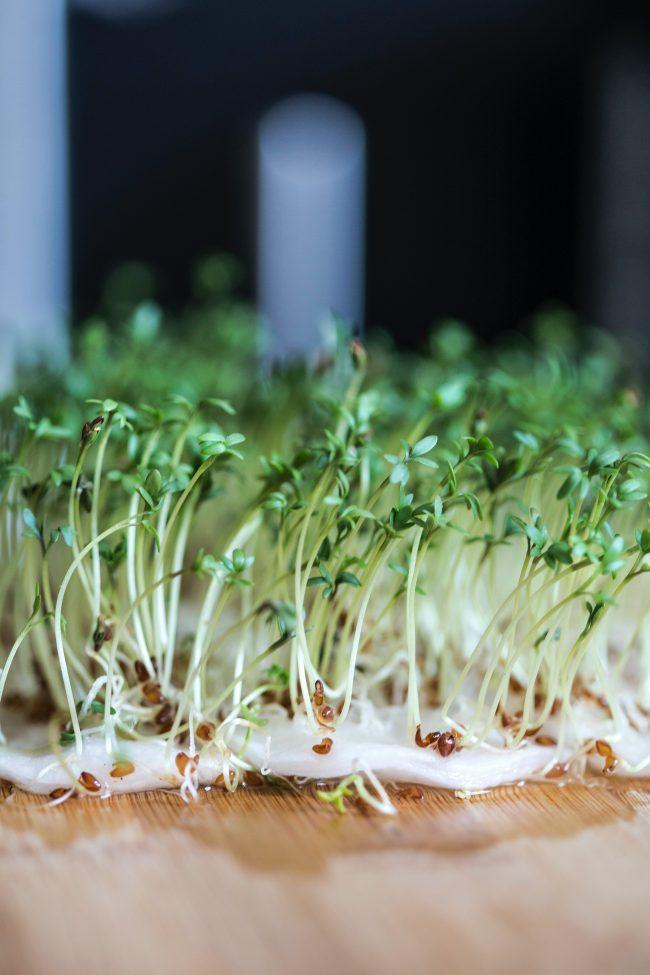
Growing Your Own Sprouts at Home
Growing sprouts is quite simple and very quick. Depending on the chosen variety, it usually takes between 2 and 10 days for you to enjoy the fruits of your labor. Here's what you'll need:
- A commercial sprouter – you can find different models at your Passion Jardins® dealer OR a Mason jar with a perforated lid or cheesecloth
- Seeds
- Water
- ...
- That's all!
How to Do It?
First, you need to soak your seeds in water for a few hours. The time will vary depending on the type of seeds: do your research. Then, you must remove the excess water. If you are using a Mason jar, place it upside down in a saucer, with a slight angle to allow the water to drain properly. The sprouters you find in stores have pre-perforated tiers that ensure optimal water drainage.
Place your sprouter in a temperate, even slightly heated area without too much direct light. Rinse your seeds twice a day, avoiding letting them soak. Depending on the chosen variety, after 2 to 10 days, your sprouts will be ready to eat. Put them in the fridge as soon as they are sprouted to stop the process and prevent bacterial growth. Consume within 3 days, ideally raw to retain all their nourishing properties, as they will lose vigor and much interest afterward. Avoid airtight containers; sprouts need to breathe to avoid rotting.
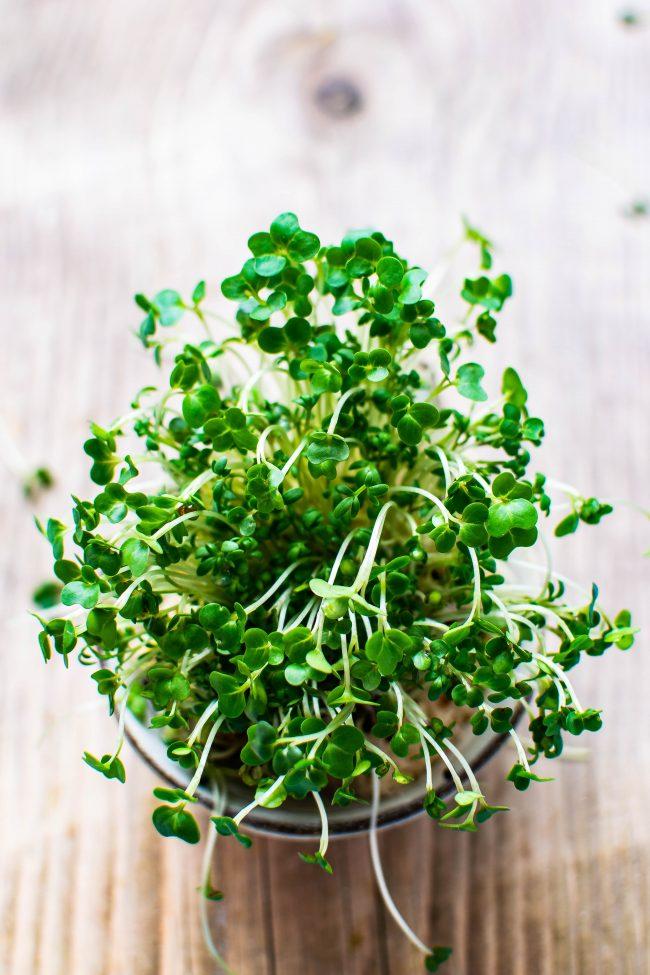
What to Choose?
You can use several types of seeds for sprouting. In fact, apart from seeds with a toxic part like rhubarb and tomatoes, you can sprout almost anything:
- Legumes: alfalfa, chickpea, lentil
- Cereals: millet, barley, quinoa
- Vegetables: broccoli, radish, carrot
- And others: basil, mustard, flax, almond nuts
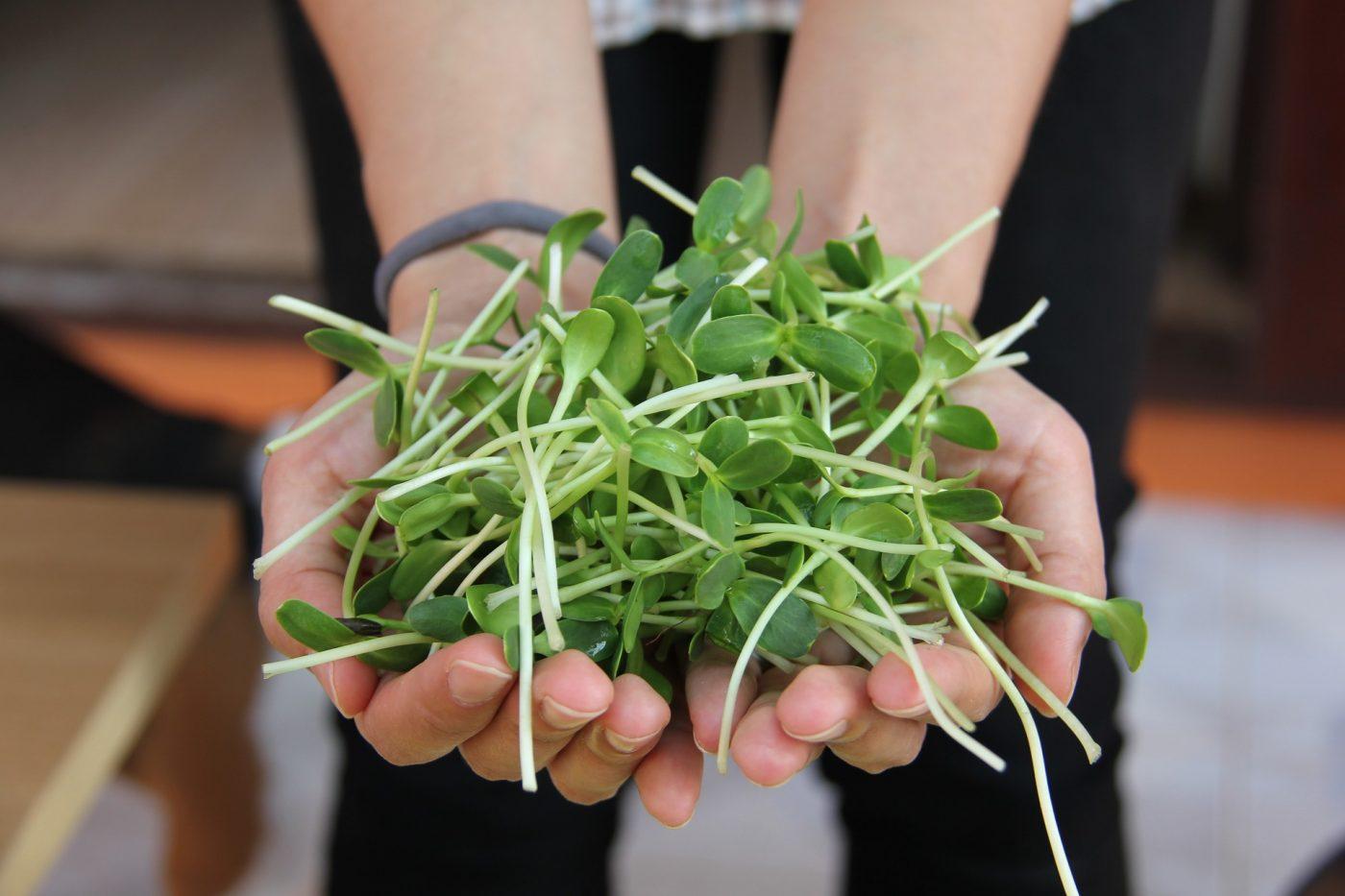
You will find a wide assortment of seeds for sprouting in gardening stores.
Creating your own sprouted seeds at home is an excellent way to feed your family healthily while creating a fun activity to do with the kids. Plus, it's a very eco-friendly way to eat fresh: saving on packaging and transportation, among other things. Try it out and discover your favorite sprouts. Bet you'll then want to move on to shoots and then seedlings...
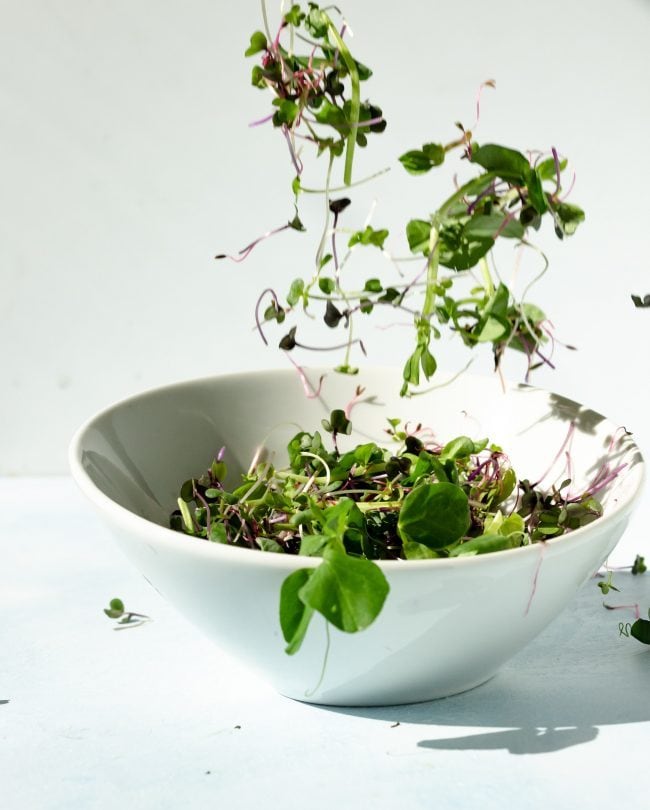
Tips and advice

